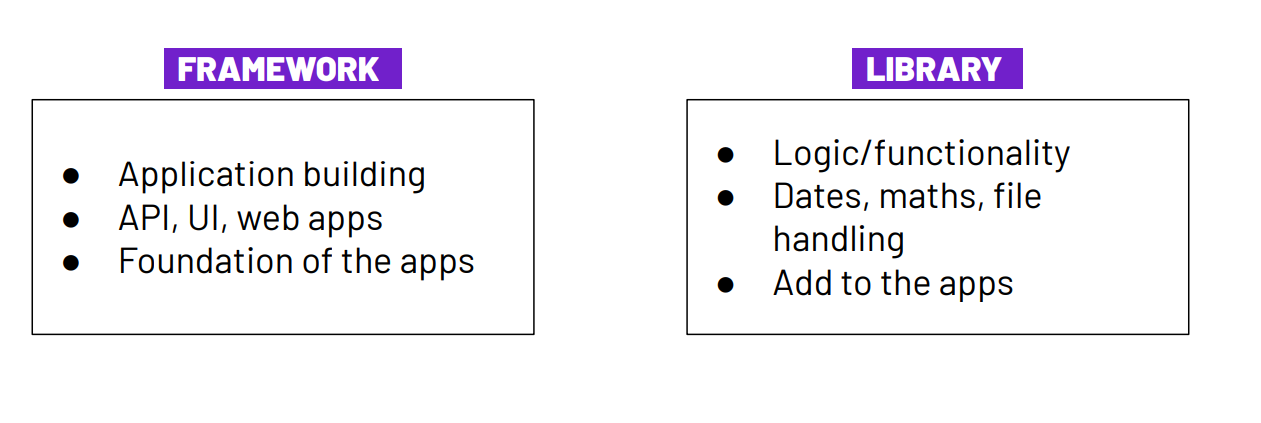What are the differences between a framework and a library in programming?

Understand the Problem
The image compares the concepts of a 'Framework' and a 'Library' in programming. It outlines their main purposes and functionalities, distinguishing how each contributes to application development.
Answer
A framework provides the foundation and structure for building applications, controlling the flow, while a library offers specific functionality which the developer calls as needed.
A framework is used for building the foundation of an application, including APIs and web apps, and it often controls the flow of the program. A library adds specific functionality to an app, such as handling dates and math, and the developer calls its methods as needed.
Answer for screen readers
A framework is used for building the foundation of an application, including APIs and web apps, and it often controls the flow of the program. A library adds specific functionality to an app, such as handling dates and math, and the developer calls its methods as needed.
More Information
Frameworks often enforce a specific architecture and control application's flow, while libraries offer isolated functions that the developer can use without any imposed structure.
Tips
Common mistakes include thinking a library dictates the application's structure or that a framework is just a collection of useful functions. Understanding the flow control is key to distinguishing between the two.
Sources
- The Difference Between a Framework and a Library - freeCodeCamp - freecodecamp.org
- The difference between libraries and frameworks - Simple Talk - red-gate.com
- Framework vs Library: Full Comparison - InterviewBit - interviewbit.com
AI-generated content may contain errors. Please verify critical information